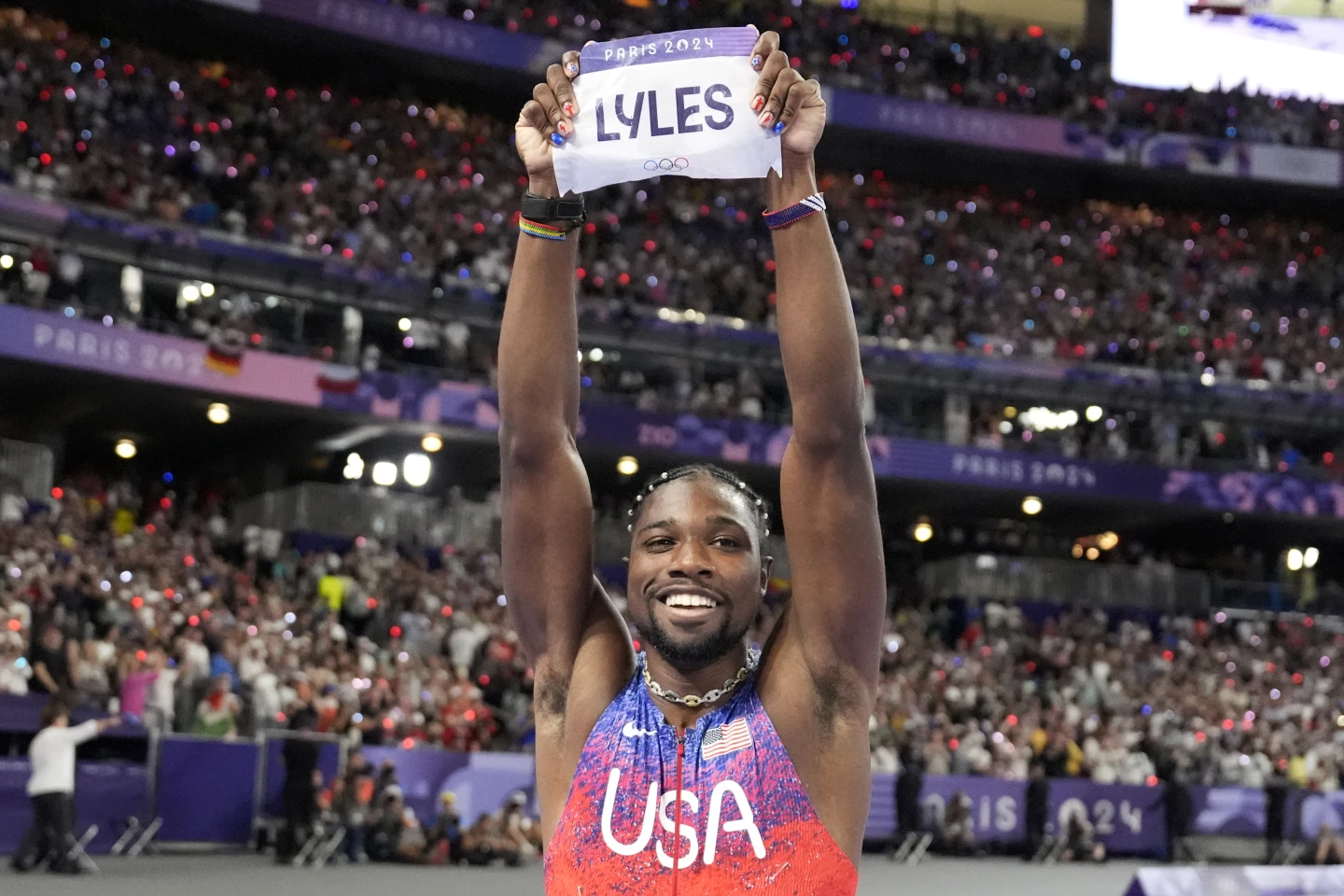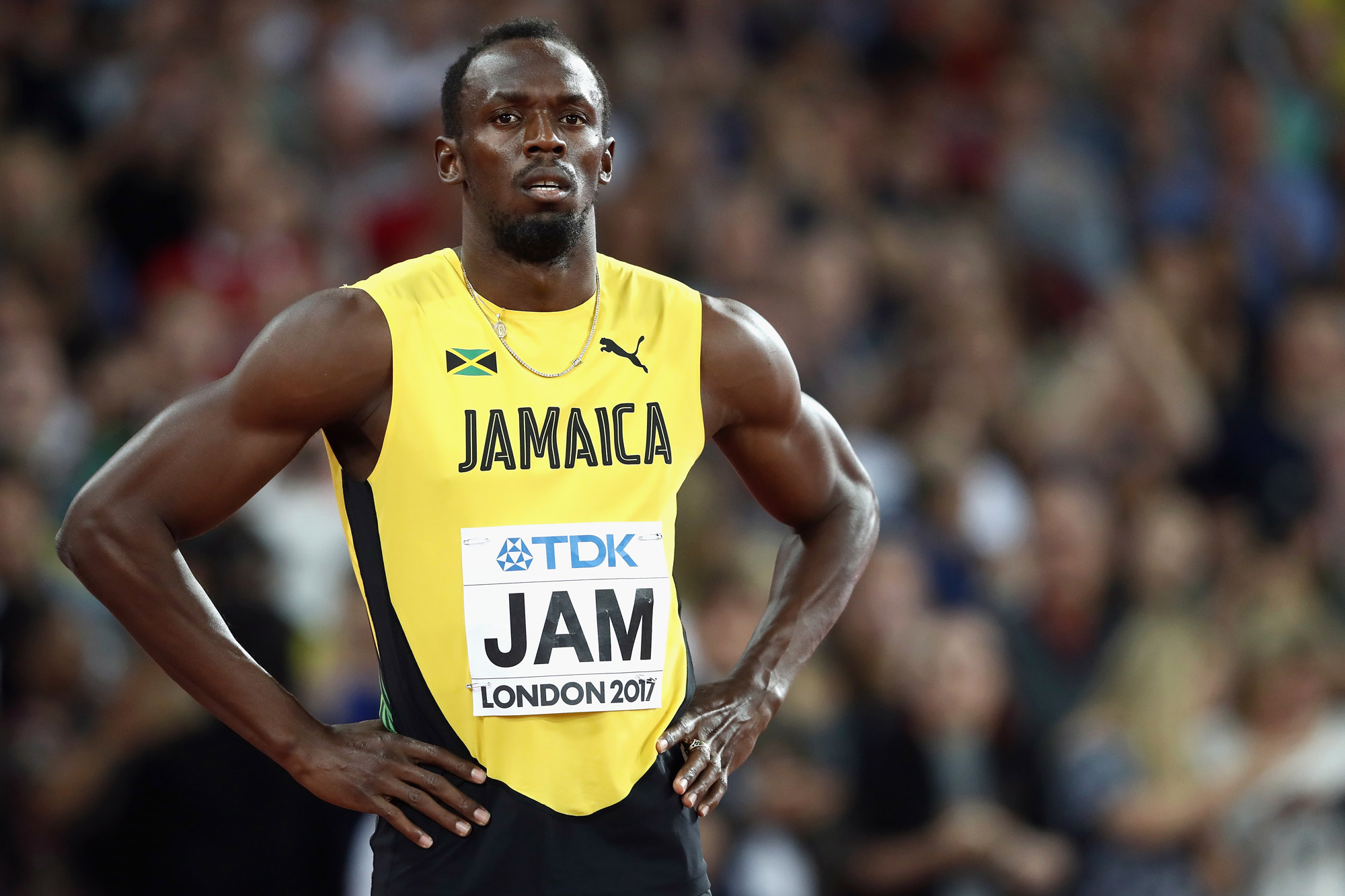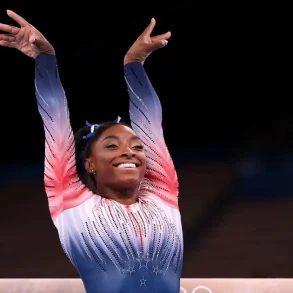Noah Lyles paced at the far end of the track, hands on his head, staring up at the scoreboard, waiting for the result he had been working hard for over the past three years.
He wondered if all the effort he put into training and improving his speed would be worth it. After ten seconds, then twenty, and almost thirty, the result finally appeared.
Yes, Lyles is the 100-meter champion at the Paris Olympics. He is the World’s Fastest Man. But it was a very close win.
The American narrowly defeated Jamaica’s Kishane Thompson on Sunday by just five-thousandths of a second — that’s .005 of a second — in an incredible race. The final times were: Lyles 9.784 seconds and Thompson 9.789 seconds.
Lyles said that before he went to Paris, one of his physiotherapists predicted the race would be extremely tight.
“He said, ‘This is how close first and second are going to be,’” Lyles recounted, pinching his thumb and forefinger together to show how close it was. “I can’t believe how right he was.”
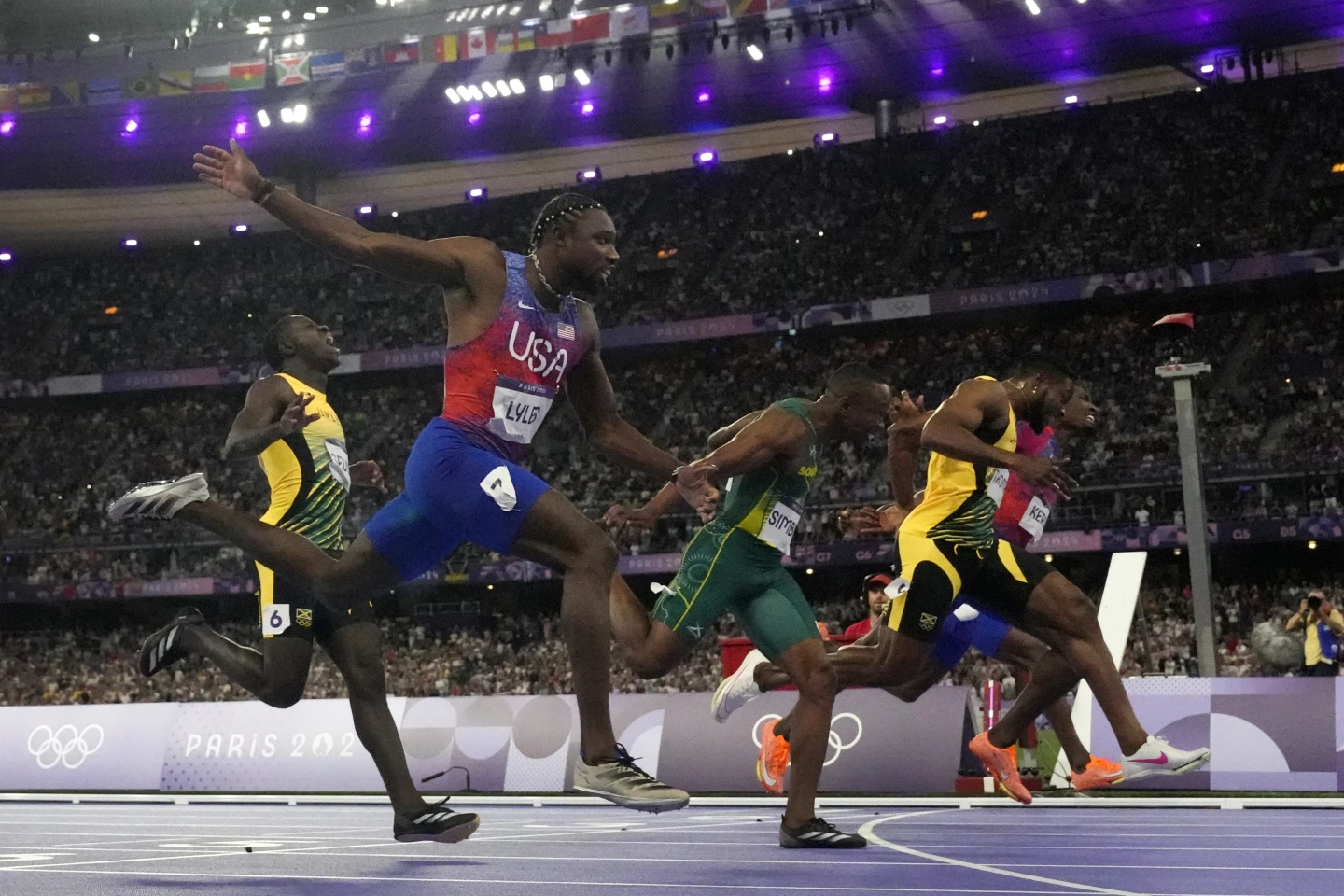
To put it in perspective, the blink of an eye takes about .1 second, which is 20 times longer than the gap between first and second place.
It was so close that when the sprinters crossed the finish line and “Photo” appeared next to the names of Lyles, Thompson, and five others, Lyles went over to Thompson and said, “I think you got the Olympics dog.”
Thompson, who was running in a lane three positions away from Lyles and didn’t know where he finished, wasn’t sure. “I was, ‘Wow, I’m not even sure, because it was that close,’” said Thompson.
Time would tell. It always does. When Lyles’ name appeared first, he removed his name tag from his bib and held it up. Moments later, he shouted to the camera: “America, I told you I got this!”
The first four racers were separated by less than .03 seconds. The top seven finished within .09 seconds of each other.
America’s Fred Kerley finished third with a time of 9.81 seconds. “That’s probably one of the most beautiful races I’ve been in,” he said.
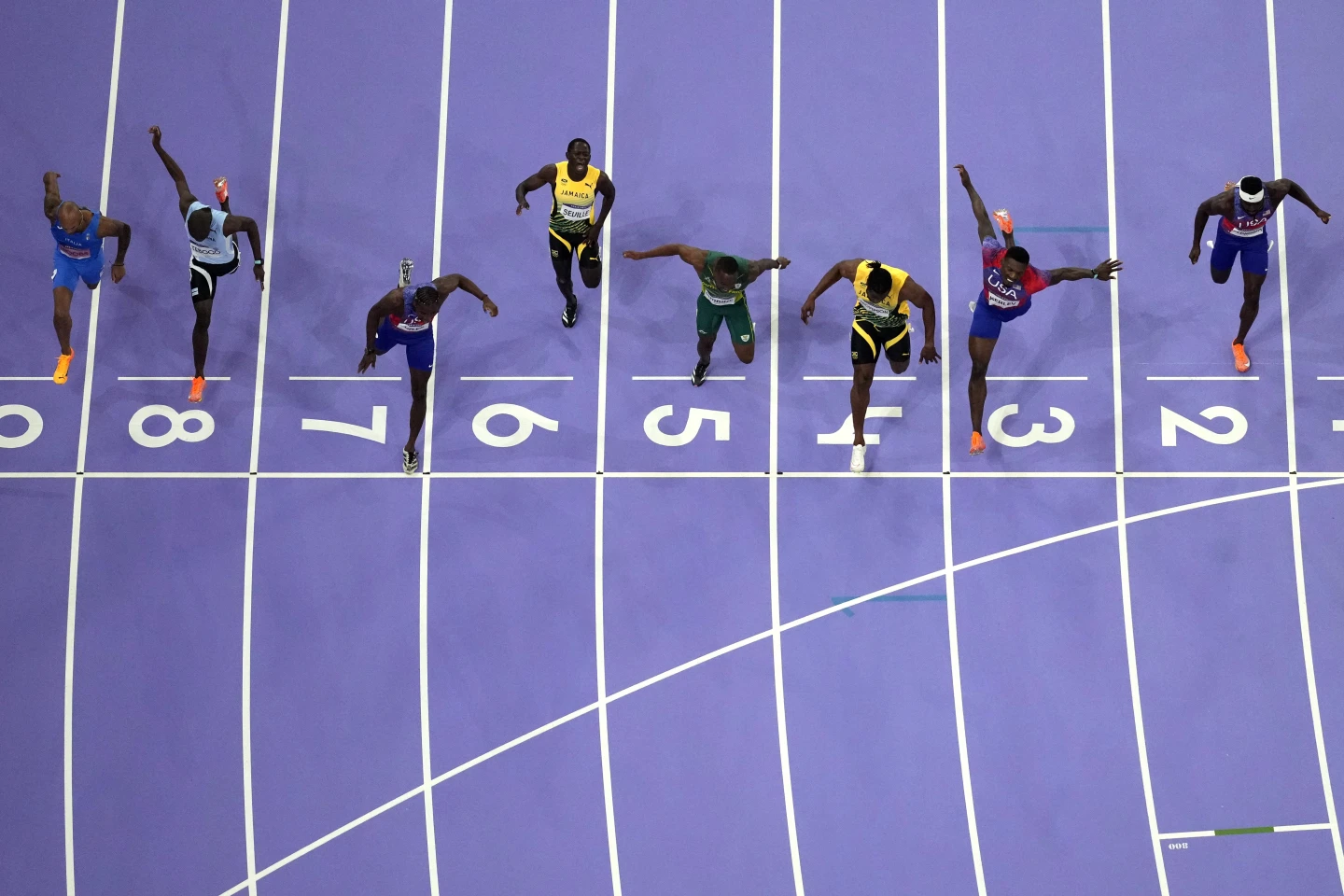
In the photo finish, Fred Kerley’s orange shoe crossed the line first, but it’s the chest that breaks the barrier that counts. Lyles’ chest crossed the line ahead of everyone.
This was the closest 1-2 finish in the 100 meters since at least the Moscow Olympics in 1980, and maybe even ever.
Back in 1980, Britain’s Allan Wells narrowly defeated Silvio Leonard, at a time when electronic timers didn’t measure to the thousandths of a second. The same was true in 1932 when Eddie Tolan won the first-ever Olympic photo finish.
Lyles admitted that during the long wait for the results, he was pretty sure he had dipped his chest a bit too early. Dipping is one of the few techniques he doesn’t practice repeatedly at his training track in Florida.
“But I would say I have a decent history with dipping,” he said, remembering races he won in high school and as a junior.
With his time of 9.784 seconds, Lyles set a new personal best and became the first American to win the 100 meters at the Olympics since Justin Gatlin in 2004.
Lyles hopes to achieve even more and bring track and field back to the excitement of Carl Lewis and Edwin Moses’ era, which he showcased in front of around 80,000 fans on a warm night at the Stade de France.
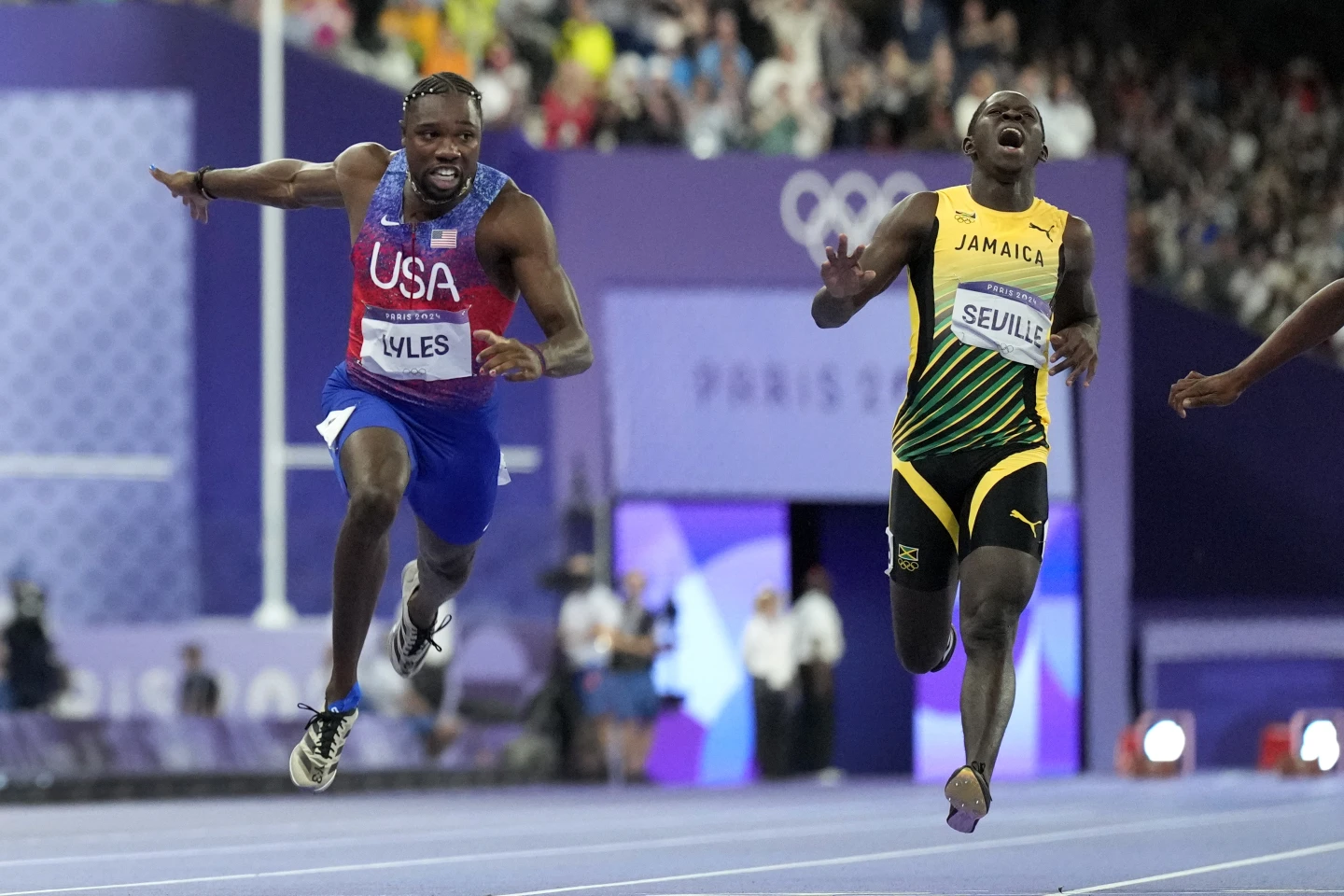
His journey began after he earned a bronze medal in Tokyo in his favorite event, the 200 meters, which was the only sprint he competed in then.
Those COVID-affected Games were a difficult experience for Lyles. He committed to improving his mental health and set a new goal — the 100 meters, and with it, a chance for track immortality.
Training was tough for a sprinter who was never known for a strong start, but he persevered. Winning the world championships last year and then the 200 meters set him on the path to achieving his goal in Paris.
Coming into the Olympic final, Lyles had finished second in both his qualifying races and was facing a sprinter who had run faster than him this year — Thompson — and another who had beaten him twice this year — Jamaica’s Oblique Seville. He knew this would not be an easy victory.
Thompson added an extra challenge when he let out a loud scream during the introduction, something Lyles himself has done in some of his biggest races. “I thought ‘Man, that’s my thing, that’s crazy,’” Lyles said.
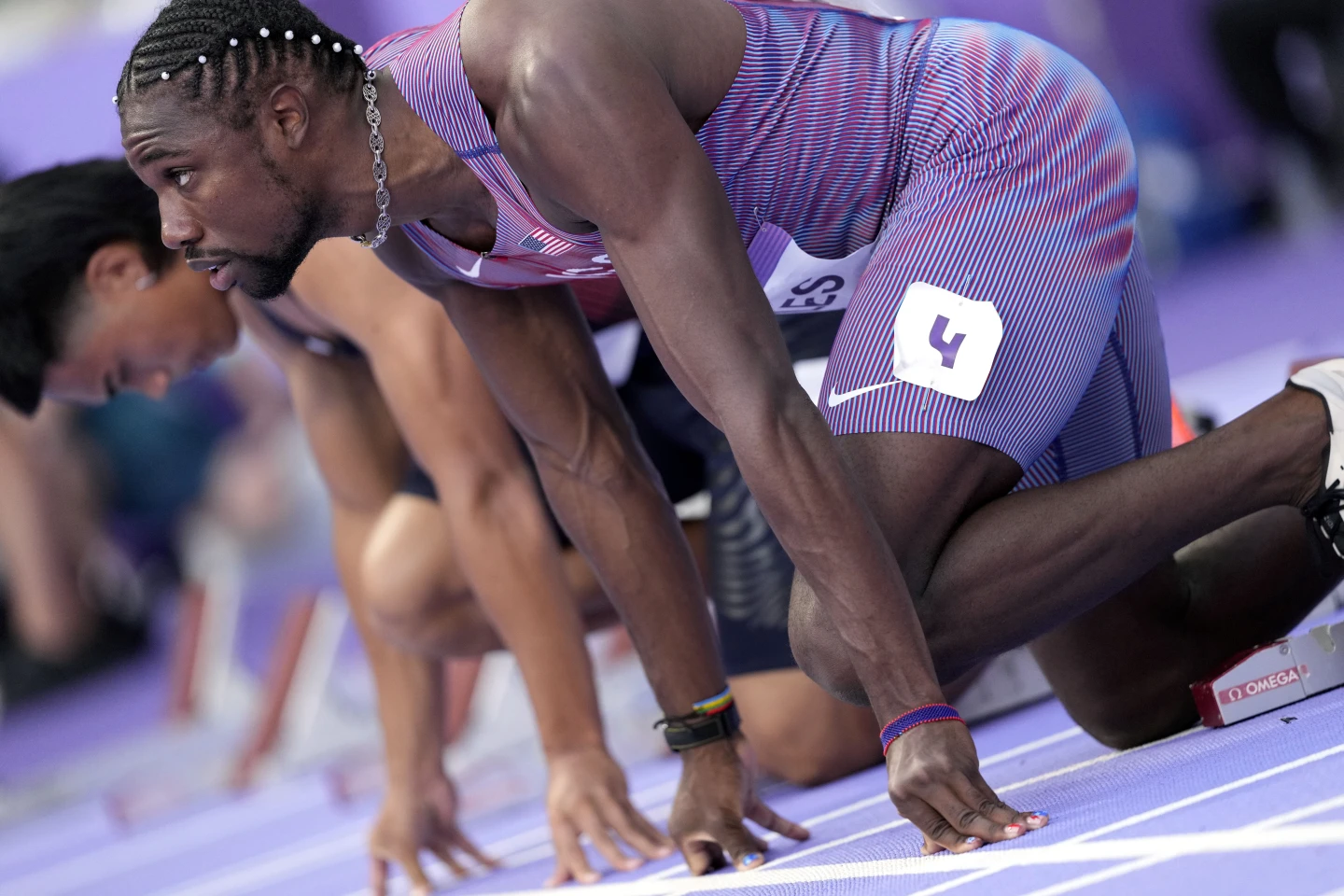
Lyles ran about 20 yards down the track and then returned to the starting line, where the runners waited for about three minutes for the race to begin. It was worth the wait.
Now, people might debate for years about what made the difference in this race. Was it Lyles’ closing speed and that lean into the finish line that he thought was mistimed?
Was it his ability to stay close to the other runners in the first 60 meters, a skill he has been practicing repeatedly since he started focusing on the shorter sprint?
The answer is: all of those factors and more. “Everyone in the field came out knowing they could win this race,” Lyles said. It took 9.784 seconds, plus about 30 more seconds, for the scoreboard to show the name of the winner.
“Seeing that name, I was like ‘Oh my gosh, there it is!’” Lyles said.



